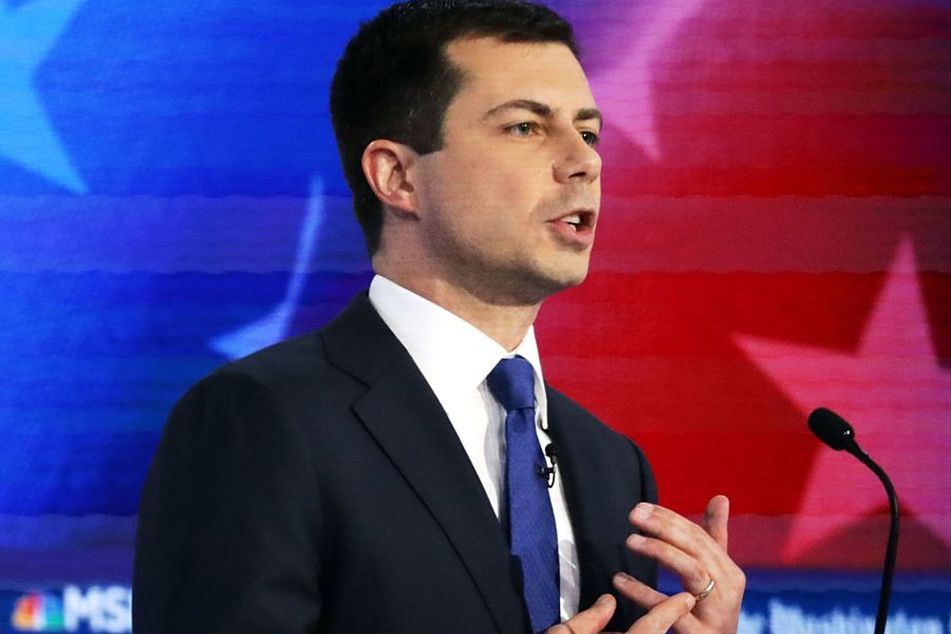Pete Buttigieg proposes a ‘public’ 401(k) program
 1
1
The proposal is similar to others seeking to improve access to workplace retirement plans but would require an employer match.
Pete Buttigieg, the mayor of South Bend, Ind., who is currently polling among the top contenders for the Democratic presidential ticket, issued a proposal that would create a federal 401(k)-type plan and require employers to contribute a 3% match to participating employees.
The proposal, issued Monday, would create a “public option 401(k)” paired with an emergency savings account in a bid to complement income from Social Security, provide universal access to a retirement plan and improve Americans’ financial security.
Mr. Buttigieg’s Dignity and Security in Retirement Plan also calls for increasing Social Security benefits, making long-term care more affordable and amending Medicaid to make it more accessible.
“Many employers would like to offer a 401(k), but the private market doesn’t offer low-cost, hassle-free options,” according to the proposal. “Not only that, but unexpected emergencies place an enormous burden on families who have not been able to save for a rainy day.”
[Recommended video: Make sure your small business clients consider this before they convert IRAs to Roths]
Employers would be required to offer the federal program to workers if they don’t already have a pension, defined-contribution plan with “a sizeable employer match,” or an “otherwise successful and generous retirement package.”
Worker who choose to participate in the savings program would have two accounts: a “rainy day” account and a retirement account.
Workers who contributed 1.5% of their pay into the emergency savings fund would receive a 3% employer contribution into their retirement account. Workers could contribute more or less money into either account; if less, the employer match would scale down proportionately.
Mr. Buttigieg, who placed No. 1 in a recent InvestmentNews poll of financial advisers who plan to vote in the Democratic presidential primary next year, estimates a “middle-earning American” who starts saving at age 22 would amass $500,000 in retirement savings by age 65.
The proposal builds on the increasingly popular theme of increasing Americans’ access to workplace savings programs. Six states — California, Connecticut, Illinois, Maryland, New Jersey and Oregon — and one city, Seattle, have created “auto-IRA” programs for private-sector workers. These programs require employers to automatically enroll employees in the state-run plan if they don’t have a private-sector option.
Members of Congress have also proposed legislation to create a federal framework to increase uptake of workplace retirement plans. For example, Rep. Richard Neal, D-Mass. and chairman of the House Ways and Means Committee, has sponsored legislation that would create a federal auto-IRA program, as well as separate legislation — the Automatic Retirement Plan Act — that would require businesses to have a workplace plan with automatic enrollment.
The SECURE Act, which passed the House of Representatives 417-3 earlier this year, would create “open multiple employer plans,” aimed at making it easier for employers to offer 401(k) plans.
“It’s really just another twist on an old story,” Philip Chao, principal and chief investment officer at Experiential Wealth, said of the Buttigieg proposal.
The proposal’s ideas around retirement and emergency savings are “valid,” Mr. Chao said, but likely “won’t be terribly successful” because it relies on voluntary participation by employees.
Will Hansen, chief government affairs officer at the American Retirement Association, said employers shouldn’t be required to offer a matching contribution to employees. A better proposal would amend Social Security payments instead, he said.
“Allow an employer to determine its own benefit package,” Mr. Hansen said.
“We already have a public option — it’s called Social Security. Leave the 401(k) to the private sector,” he added.
Workers would be able to tap their emergency fund at any time without penalty. They could also tap their 401(k) account without any tax penalties before retirement in the event of a hardship. (Today, there’s a 10% tax penalty for those who withdraw 401(k) money before age 59½.)
Contributions to 401(k)s would be defaulted into target-date funds, but employees could select other options. Investment fees would be “required by law to be near zero,” according to the proposal.
Learn more about reprints and licensing for this article.








